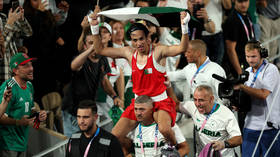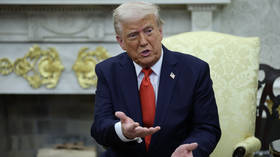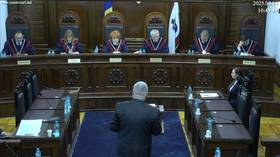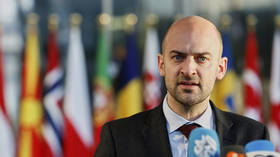No ‘solid’ way to distinguish a man from a woman – IOC chief
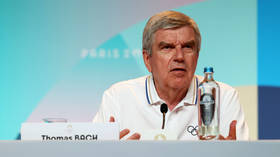
International Olympic Committee (IOC) President Thomas Bach said on Friday he is not aware of a ‘scientifically solid’ way to distinguish a man from a woman, defending the body’s decision to allow two boxers whose gender eligibility has been disputed to take part in the women’s boxing championship.
Bach’s words came in response to a question about whether the IOC would consider reviewing its gender identification guidelines in light of the controversy surrounding a pair of boxers, Algerian Imane Khelif and Taiwanese Lin Yu-ting, being allowed to take part in the Games as women despite previous allegations that they are actually biologically male.
According to Bach, while the IOC “would be more than pleased to look into” the situation, it does not have a way to probe the gender claims of either athlete at this time.
“We have said from the very beginning, if somebody is presenting us with a scientifically solid system how to identify men and women, we are the first ones to do it. We do not like this uncertainty,” Bach stated, adding that chromosome testing is not enough to scientifically distinguish between men and women “anymore.” He noted also that “it is not possible” for the IOC to make its decisions based on “someone saying this is not a woman just by looking” or “by falling prey to a defamation campaign by a not credible organization with highly political interest.”
The latter comment appears to be a jab aimed at the International Boxing Association (IBA), which disqualified both Khelif and Yu-ting from the World Championships last year after they “failed to meet the eligibility criteria for participating in the women’s competition.” The two bodies have been at odds in recent years.
In a statement released at the end of July, the IBA reiterated that “the athletes… were subject to a separate and recognized test [which] indicated that both… were found to have competitive advantages over other female competitors.”
The gender controversy at the Paris Olympics sparked heated debates globally after Khelif beat Italy’s Angela Carini in the preliminary rounds at the Olympics in a bout that lasted a mere 45 seconds. The incident raised questions as to the fairness of allowing biological males to compete with females.
Last week, IOC spokesman Mark Adams claimed that all competitors approved for the Games “comply with the eligibility rules,” and cast doubts on the IBA tests. The IOC previously explained that Khelif and Lin Tu-ting had been cleared for the Games due to being “women according to their passports.”
Several hours after Bach’s press briefing, Khelif won Olympic gold after defeating China’s Yang Liu in the welterweight final in Paris. The outcome sparked a new wave of heated debate online, with some social media users expressing support for Khelif, while others lambasted the IOC and called on it to strip the athlete of the award. Many also ridiculed Bach for his recent remarks, noting that there are a variety of genetic tests and accusing him of “gaslighting the world.”
